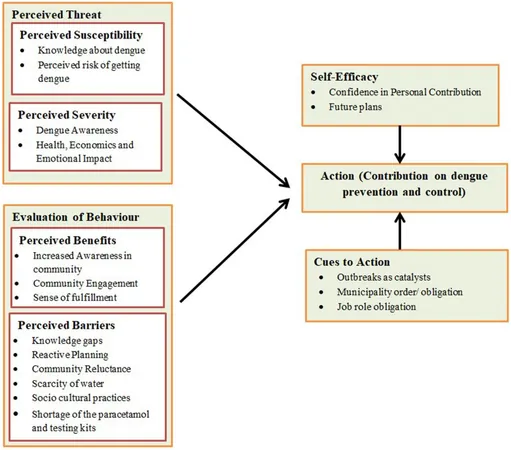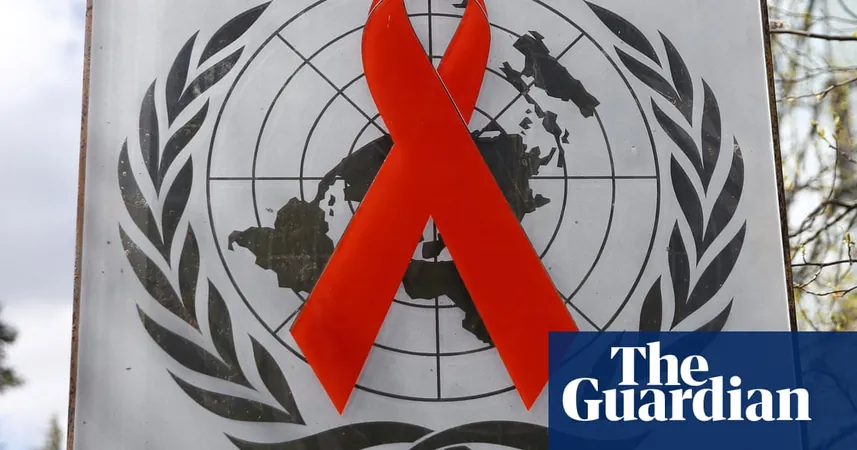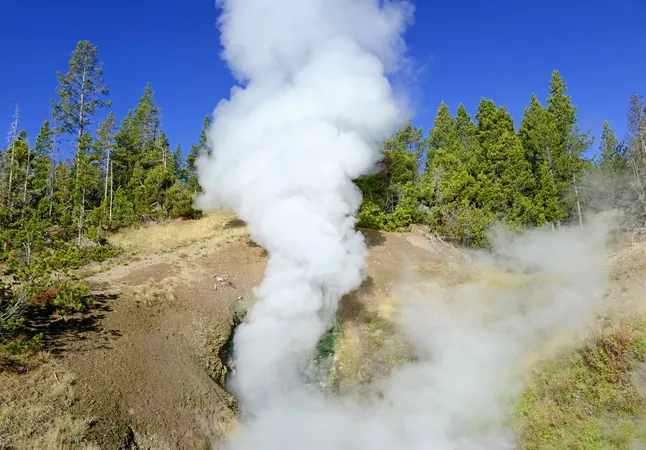
Community Leaders Unite Against Dengue: Insights from Urban Nepal
2025-05-30
Author: Jia
The Battle Against Dengue in Urban Nepal
In urban Nepal, dengue fever has become a pressing public health concern, prompting community stakeholders to come together and strategize effective prevention and management tactics. A qualitative study involving 20 key informants sheds light on their experiences, highlighting grassroots efforts in combating this mosquito-borne disease.
Grassroots Awareness Campaigns Making Waves
Community members, including Female Community Health Volunteers (FCHVs) and local political leaders, have played an invaluable role in educating residents about dengue prevention. Engaging in door-to-door visits, these dedicated individuals promote practices like eliminating stagnant water and maintaining cleanliness, which are crucial due to the Aedes mosquito's preference for breeding in clean environments. For instance, a FCHV with over two decades of experience shared, "As social workers, we ensure that residents understand the importance of not allowing water to accumulate, which is vital for reducing breeding sites."
Educational Initiatives and Community Engagement
Alongside home visits, stakeholders organized awareness programs in schools and local workshops. The creation and distribution of informative pamphlets and posters were part of a wider effort to inform the community about dengue prevention strategies. A ward chairperson expressed pride in their proactive campaign, stating, "Instead of relying solely on fumigation, we focused on direct communication with residents about mosquito breeding sites. This grassroots approach has proven effective." In collaboration with municipal health authorities, the "Search and Destroy" program was initiated to inspect and eliminate potential mosquito habitats across the city.
Understanding the Threat: Perception and Reality
Participants in the study demonstrated an acute awareness of dengue's risks, recognizing it as a seasonal threat that can lead to severe illness or even death. The participants' knowledge is bolstered by training from health officials, enhancing their perceived susceptibility to dengue.
Experiencing the Severity: Firsthand Accounts
Firsthand experiences shared by community members illustrate the disease’s devastating impact. Symptoms such as high fever, severe body pain, and hospitalization were common narratives. One FCHV recounted, "Having dengue was so debilitating that I felt like I was on the brink of death." The emotional toll, alongside financial burdens from medical treatment, adds an additional layer of concern, with many expressing fears that dengue could overshadow other health crises.
Transforming Challenges into Opportunities
Despite these challenges, the increased awareness within the community is seen as a significant positive outcome. Stakeholders observed a shift in behavior, with more residents taking preventive measures against dengue after experiencing an outbreak. One ward chairperson noted, "Initially, people were scared of dengue, but now they understand its seriousness." This heightened awareness and community engagement is crucial for fostering a proactive approach to public health.
Barriers and Reactive Measures
However, significant barriers persist. Many community members remain reluctant to change practices that contribute to mosquito breeding, often due to a lack of knowledge or mistrust in public health initiatives. Local leaders highlighted the challenges faced while convincing residents to eliminate standing water in their homes, insisting that a more proactive educational approach could mitigate these issues.
Moving Forward with Confidence
Looking ahead, community stakeholders remain committed to enhancing their dengue prevention strategies. With plans in place for preemptive awareness campaigns and community-wide initiatives, there's an optimism that collective efforts can effectively combat future dengue outbreaks.
Conclusion: A Unified Front Against Dengue
The insights shared by these local leaders underline the importance of community engagement, education, and preparedness in the fight against dengue. By uniting their resources and knowledge, community stakeholders are paving the way for a healthier future in urban Nepal, demonstrating that grassroots movements can yield significant results in public health.



 Brasil (PT)
Brasil (PT)
 Canada (EN)
Canada (EN)
 Chile (ES)
Chile (ES)
 Česko (CS)
Česko (CS)
 대한민국 (KO)
대한민국 (KO)
 España (ES)
España (ES)
 France (FR)
France (FR)
 Hong Kong (EN)
Hong Kong (EN)
 Italia (IT)
Italia (IT)
 日本 (JA)
日本 (JA)
 Magyarország (HU)
Magyarország (HU)
 Norge (NO)
Norge (NO)
 Polska (PL)
Polska (PL)
 Schweiz (DE)
Schweiz (DE)
 Singapore (EN)
Singapore (EN)
 Sverige (SV)
Sverige (SV)
 Suomi (FI)
Suomi (FI)
 Türkiye (TR)
Türkiye (TR)
 الإمارات العربية المتحدة (AR)
الإمارات العربية المتحدة (AR)